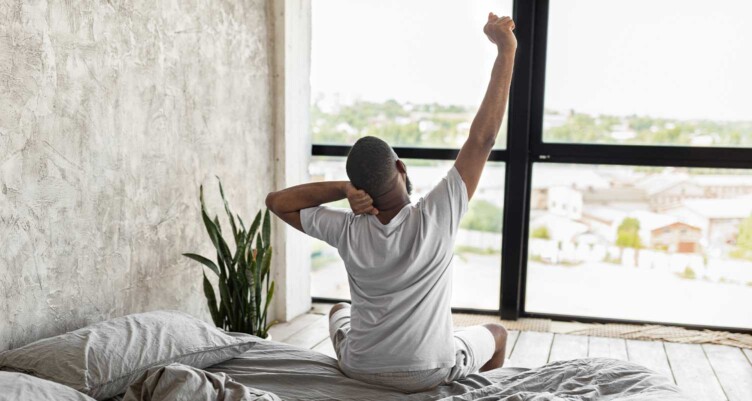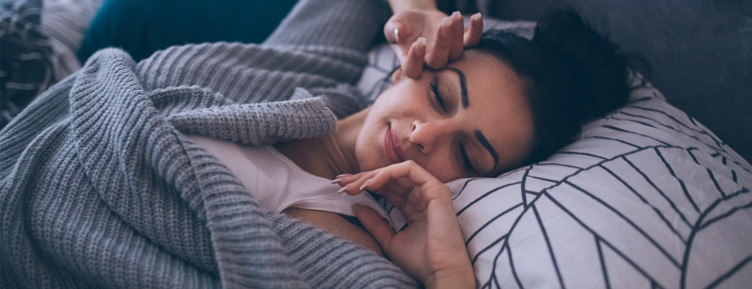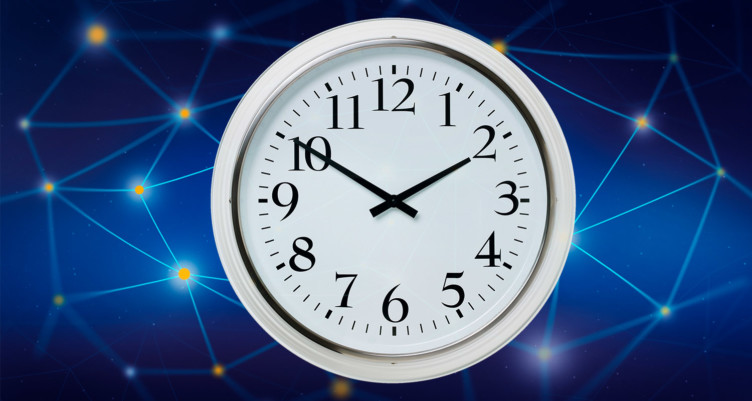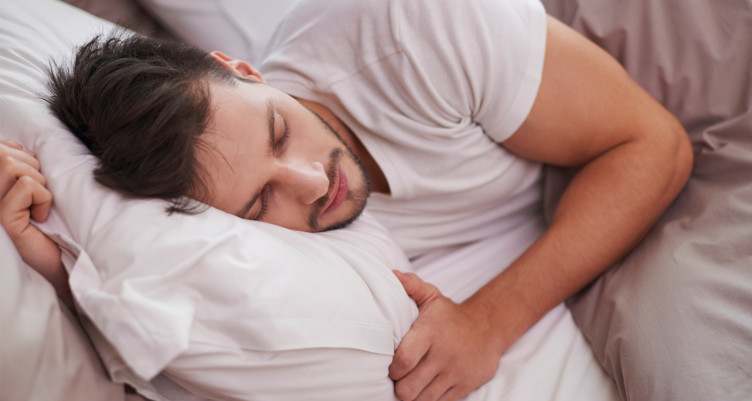Could Your Sleep Chronotype Be the Key to Productivity Even if You’re Not a Morning Person?

- Listening to your body can help you determine your sleep chronotype for your ideal natural schedule for work, exercise and rest
- Your circadian rhythm is your sleep-wake cycle, the internal clock your brain uses to signal when to make you feel alert or tired.
- Regardless of what colloquial proverbs say, no one schedule is best; some people are naturally more productive earlier in the day, while others thrive in the later hours.
- Read on to discover your sleep chronotype, along with small changes to manage your life around your body’s natural sleep-wake rhythms.
The sleep chronotype theory proposes that, at least in terms of productivity, night and morning people are equals who simply operate on different schedules. “The early bird gets the worm.” “Early to bed and early to rise makes a [human] healthy, wealthy and wise.” Those colloquial proverbs tell us that being a morning person is inherently better for us. Some research has found a causal association between choosing early wake-ups and a more positive outlook[1]. Meanwhile those who stay up late and sleep less, may face an increased risk for certain metabolic issues.[2]
The term sleep chronotype was popularized by Dr. Michael Breus, a clinical psychologist who is a diplomate of the American Board of Sleep Medicine and a fellow of the American Academy of Sleep Medicine. The premise behind sleep chronotypes is using your unique wiring to determine your most energetic times of day. Beyond classification as a morning person or a night owl, the four classifications of sleep chronotypes aim to identify the best time of day to make a major decision, work out and perform at your peak.
Sleep chronotypes are genetically predetermined by the PER3 gene[3], one of the genes that affect sleep and awakening. Discover your sleep chronotype and how small schedule changes can let you reclaim your day.
Learn why you're not sleeping and find out how to wake up feeling refreshed. Enter your email to get your free guide!
Circadian rhythm vs. sleep chronotype

Your circadian rhythm — your brain’s sleep-wake cycle — determines when you are alert and when you are sleepy over a 24-hour period. It is the internal clock that your brain uses to signal when to release certain hormones, including melatonin.
While working with individuals experiencing insomnia, Breus observed that everyone’s circadian rhythm is slightly different.
Based on morning and evening preferences, he identified four different chronotypes, or circadian rhythm personalities. He then associated each one with an animal whose sleep-wake habits best mirrored them.
When Breus shifted his patients’ daily routines to accommodate their sleep chronotype, their productivity increased, and sleep issues resolved.
The Journal of Clinical Sleep Medicine, the official peer-reviewed journal of the American Academy of Sleep Medicine, also uses this term to describe natural sleep-wake tendencies[4].
Which sleep chronotype describes you?

While not specific medical conditions or diagnoses, the four sleep chronotypes[5] may help individuals determine their natural sleep-wake cycle. These are the four, as described by Breus in his book, The Power of When.
Bear
Most people fall into the bear chronotype category. A bear sleep-wake pattern follows the sun, with no difficulty sleeping. Bears are most ready for intense tasks in the middle of the morning, and they feel less energy in the mid-afternoon.
Friendly and outgoing, bears tend to have steady energy and productivity they can maintain all day, as long as they respect their natural energetic decline after lunch.
Lion
Lions wake up early without any coffee until midmorning or later. They are ambitious leaders and high achievers. Their most productive hours are early in the day, and their energy declines in the evening, so they go to bed early.
Wolf
Wolves are on the nocturnal end of the spectrum. They start their days later, and their productivity rises as other chronotypes’ declines. Wolves have two peak periods: from noon to 2:00 p.m. and at the end of the workday. They schedule meetings later in the day and make late restaurant reservations.
Wolves tend to be creative, and those areas of their brain light up when the sun goes down. Wolves are often introverted and crave their alone time.
Dolphin
Dolphins are light sleepers who frequently wake during the night and often do not get enough sleep. Their routine may not be consistent, and they may struggle to fall asleep, as their minds will not turn off. Dolphins tend to be cerebral over-thinkers and perfectionists. They do their best work from mid-morning through early afternoon.
When schedules and chronotypes conflict

Waking and sleeping when it suits us is not always possible, due to family, work, and school routines. This can impact sleep quality as well as performance, according to a 2023 analysis of university students’ attendance records[6].
During the adolescent years, circadian rhythms shift as part of the natural maturing process. This is why teens often prefer to sleep in. Early school start times are incompatible with teens’ natural brain patterns[7] and result in insufficient sleep[8]. Such schedules can lead to learning and behavior problems.
Likewise, the standard 9-to-5 workday suits the productivity peaks of lions and bears while leaving out wolves and dolphins. Thankfully, more companies are allowing employees to create more flexible schedules and work at their most productive times. While not every profession lends itself to this model, research shows it benefits productivity.[9]
Sleep changes that increase productivity

How can you optimize your productivity based on your sleep chronotype? Start by taking an online sleep chronotype quiz, such as the free one that Breus offers. Once you understand your natural rhythms, you can start to think about how to work with your cycle, not against it. These changes may help:
- Focus on sleep quality and consistency. Adults need at least seven hours of sleep per night[10], so start by making sure you are getting enough rest, regardless of when you are going to bed.
- Find small ways to optimize your sleep cycle.
- Move your workouts to the time of day when you have the most energy.
- Block off the time of day where you have the best focus. Use those hours for work instead of meetings.
- Shift your work schedule if possible. Could you come in earlier or stay later to optimize your productivity?
- Experiment with what works for you. Journal about the changes you make to your schedule, taking note of how you feel during the day and how well you sleep at night.
- Talk to your health-care provider if you are struggling to sleep.
Want to feel more rested and get more done? Sign up below and get your free Bulletproof Sleep Roadmap.
Learn why you're not sleeping and find out how to wake up feeling refreshed. Enter your email to get your free guide!



